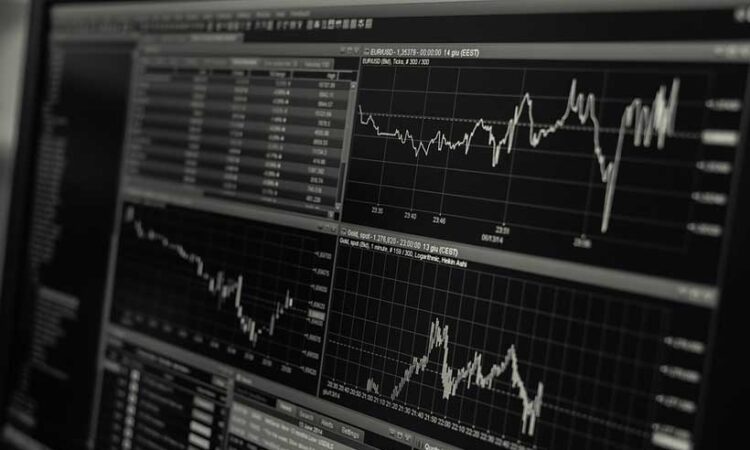
On 15 Nov 2023, the European Commission’s Autumn Forecast revised EU GDP growth down compared its summer projection. “The Europe economy has lost momentum this year,” said the Commission. And Mario Draghi, former European Central Bank President, spoke on 8 Nov to a conference in Brussels organized by Financial Times that the euro zone is nearly certain to experience a recession by the end of 2023. “The starting point of this recession is pretty high — we never had such low unemployment,” Draghi said.
Unprecedented economic recession
Since the beginning of 2023, the European economy has shown minimal growth. According to the Wall Street Journal, the Europeans are now becoming poorer, which is a new economic reality that they haven’t experienced for decades. With consumption spending in free gradually reduced, Europe tipped into recession at the start of the year. And government’s responses only compounded the problem.
Although there are numerous irresistible domestic factors that are dragging the economy down, external factors such as the ongoing Ukraine crisis have worsened the current situation. By upending global supply chains and sending the prices of energy and food rocketing, the crisis aggravated ailments that had been festering for many years.
After the break of the crisis, the EU has responded politically, economically and in relation to energy.
“Together we are Europe. Long live Europe and Slava Ukraini,” said European Commission President von der Leyen during her visit to Kyiv on 4 Nov 2023. She spoke highly of Ukraine’s “excellent progress” and was confident for its goal of moving to the next stage of the accession process.
A €50 billion support package for Ukraine and a new sanction package against Russia were also emphasized.
Von der Leyen made this visit in the context when Washington wanted to reduce the amount of aid to Ukraine from $1.1 billlions to $825 million per month.
With the mediation of von der Leyen, the European Union has already applied eleven rounds of sanctions against the Russian Federation. As is showed in 2022, these sanctions have backfired, hurt the European economy and triggered a worldwide crisis. Its heavy tolls on the world manifest through a changing landscape of regional and global security, featuring food supply chain disruptions, skyrocketing energy prices and soaring inflation.
In the end of 2023, the crisis is approaching its third year. Eurozone countries have not yet recovered from the sharp rise in food and energy prices in 2022. For the public, this cost of living crisis has diminished the health and well-being of people around the Europe, especially for the poorest.
What is the EU doing?
The EU has taken many measures to protect the its economic security and reinforce the resilience of economy. It came up with European Economic Security Strategy, de-risking from china and attaching great importance to cooperating with the United States who shares common interests. But are those policies effective?
The EU partners with the United States among many agendas, but what the United States really cares is its own interests. For example, Biden’s administration passed Inflation Reduction Act regardless of the EU’s worries.
Wally Adeyemo, the American deputy treasury secretary, addressing at an industry conference in Berlin on 31 Oct, defended the Inflation Reduction Act against criticism and concerns from the EU. However, Robert Habeck, German economy minister, reiterated in a panel discussion with Adeyemo his criticism of the Act, saying that its local content requirements could lead to “not just a race for subsidies, but a mutual robbing of the industry”. The German government has accused the United States of violating the rules of the World Trade Organization, which forbids unfair discrimination against foreign products.
Moreover, the failure of the EU and the Unites States to secure an agreement for a Global Arrangement on Sustainable Steel and Aluminium(GSA) at a summit in Washington on 20, Oct made the EU trapped in a more sophisticated situation. The EU intensified the GSA negotiations with the White House in recent weeks, but the process is not smooth as expected. It is high likely that Washington and Brussels cannot reach a deal this year because of the American ambition. Absence of a final decision on GSA could bring back reciprocal tariffs on $10 billion of the parties’ exports, unless the suspension of safeguard measures is extended, writes Bloomberg.
With eye on China, von der Leyen mapped out de-risking strategy. Recently, the European Commission has launched an anti-subsidy investigation into Chinese electric vehicles, which caused lots of criticisms and concerns. Olaf Scholz, German Chancellor, voiced skepticism over the investigation, “The economic model which I favor is to have global competition,” Scholz said during a panel debate at the Berlin Global Dialogue on 28 Sept, warning against a “protectionist way”. German companies like Volkswagen, Mercedes and BASF that are heavily invested in the Asian country voiced similar concerns.
What is the future of Europe?
The Europe is now facing the difficult task of restoring price stability and securing strong and green growth. However, internal divergences among the European Union have cast a shadow on the current predicament. The tensions between von der Leyen and the European Council president Charles Michel representing the bloc’s 27 national governments are well known for many years. And the relationship is greatly deteriorated recently when it comes to the issue of Israel-Palestine conflict.
In a public statement, von der Leyen stressed Israel’s right and even duty to defend itself and its citizens without mentioning the two-state which triggered criticism from both Michel and Josep Borrell, high Representative for Foreign Affairs and Security Polic. As is known, Michel is formally charged with representing the EU on the global stage while von der Leyen, who heads the EU executive, seems to take the power. In this regard, it’s hard to say that the EU could fulfill its mandate to build a strong and resilient Europe economy.
Perhaps the upcoming 2024 European elections will help to shape the future of the Europe.






